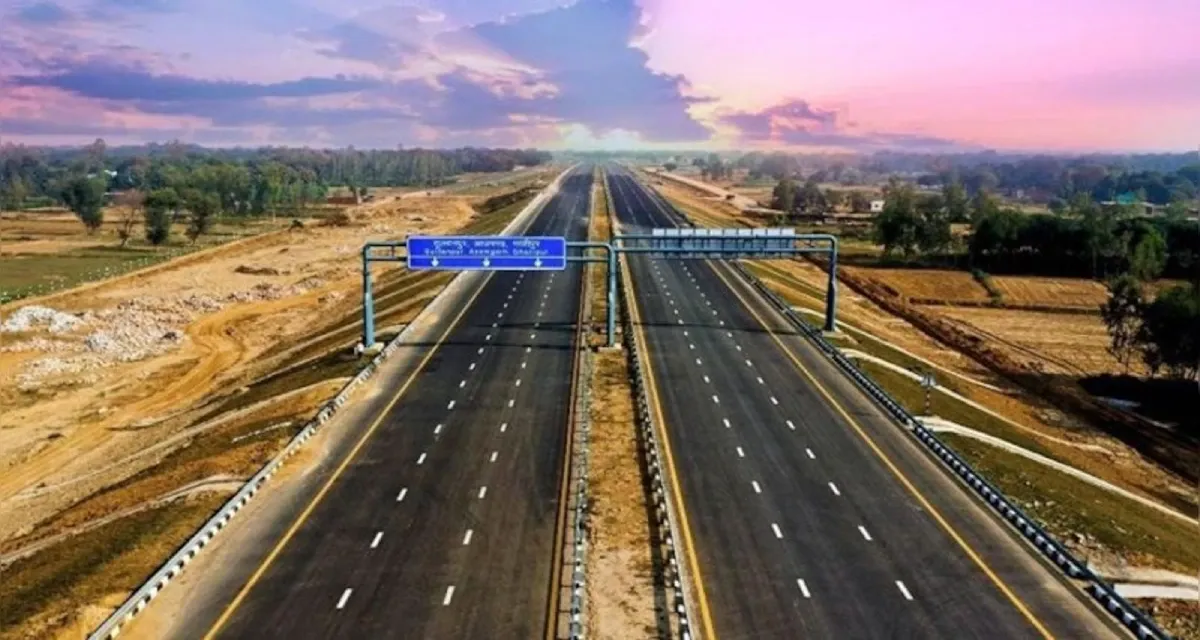

In a move likely to affect millions of commuters and freight transporters across the nation, the National Highways Authority of India (NHAI) has announced a nationwide increase in toll charges, ranging from 3% to 5%. Effective from June 3, this revision comes after a period of delay during the recent election season. The decision, confirmed by NHAI officials, has stirred discussions about its economic implications and the broader state of India's infrastructure financing.
These tolls spent on prominent Indian highways are more often revised annually to reflect the increased cost of inflation. Newspaper advertisements giving information on the adjustments of tolls have also been published throughout the country. According to these changes, around 1,100 toll plazas throughout the country will be affected, and travellers, be they private car users or businesses engaged in activities along the highway networks, will feel the pinch in terms of cost for using these facilities.
Explaining the rationale behind the toll hike, a senior NHAI official highlighted the importance of toll revenue in financing the ongoing expansion and maintenance of India's national highway network. This network, which spans thousands of kilometers, has undergone significant development over the past decade, solidifying India's position as having the second-largest highway network globally.
The decision to implement the toll hike post-election has drawn attention to the intersection of politics and infrastructure development. While election periods often see delays in policy decisions, the timing of this toll increase has raised questions about its potential political ramifications.
The funds generated from toll charges, coupled with revenue from fuel taxation, are crucial for financing infrastructure projects. These projects include the construction of new highways, the widening of existing ones, and the maintenance of essential infrastructure. However, the burden of increased toll charges falls directly on commuters and businesses, who may face higher transportation costs as a result.
The announcement of the toll hike has sparked debates among policymakers, economists, and the general public. Some argue that such increases are necessary to fund vital infrastructure projects and ensure the safety and efficiency of the nation's roadways. Others, however, express concerns about the impact on already strained household budgets and the broader economy.
Critics of the toll hike point to the need for greater transparency in the allocation and utilization of toll revenue. They call for clearer mechanisms for accountability to ensure that funds collected from tolls are effectively invested in infrastructure development and maintenance.
Additionally, there are concerns about the potential disproportionate impact of toll hikes on low-income individuals and small businesses. For many, toll charges represent a significant portion of their transportation expenses, particularly for those who rely on highways for commuting or transporting goods.
Moreover, the timing of the toll hike, coming amidst economic challenges exacerbated by the COVID-19 pandemic, has raised eyebrows. With inflationary pressures already affecting households and businesses, the additional burden of increased toll charges could further strain budgets and hinder economic recovery efforts.
The announcement also underscores the broader issue of infrastructure financing in India. While the country has made significant strides in expanding its national highway network, sustaining this momentum requires consistent investment and innovative financing solutions. Balancing the need for infrastructure development with the affordability of transportation for citizens remains a critical challenge for policymakers.
In response to the toll hike, advocacy groups and opposition parties have called for greater public consultation and transparency in decision-making processes related to infrastructure projects and toll revisions. They emphasize the importance of incorporating public feedback and considering the socioeconomic impact of such policy changes.
Looking ahead, the toll hike on national highways serves as a reminder of the complex interplay between infrastructure development, economic policy, and public welfare. As India continues its journey towards becoming a global economic powerhouse, ensuring equitable access to transportation infrastructure while maintaining fiscal responsibility will remain paramount. The toll hike decision, therefore, prompts a broader conversation about the priorities and values that underpin India's development trajectory.
Also Read: